Alaphilippe: I want to be at 100 per cent in March
Frenchman in South America to peak for Strade Bianche and Milan-San Remo
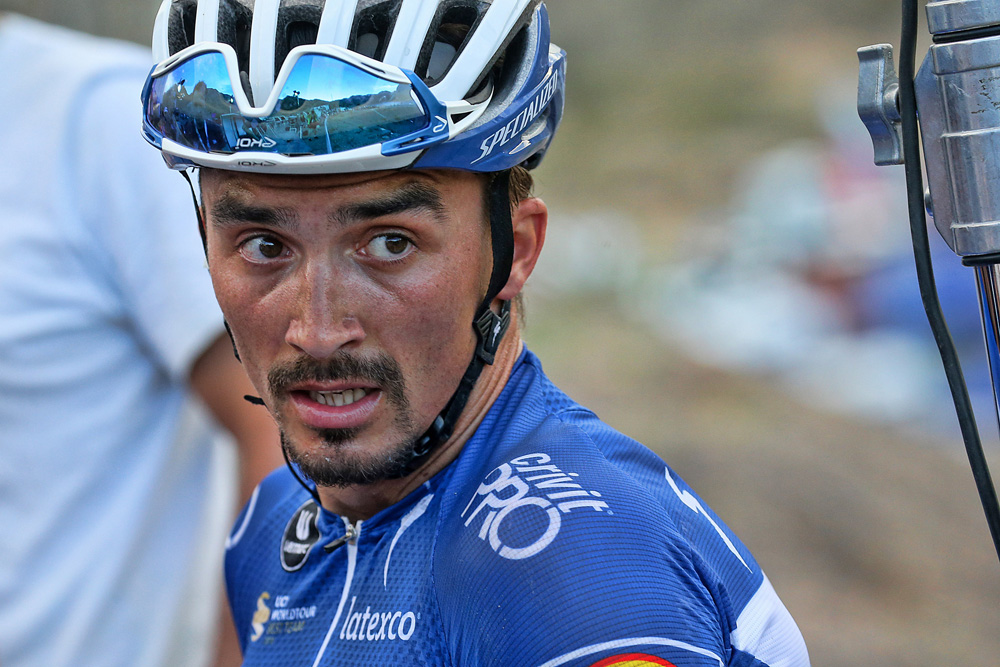
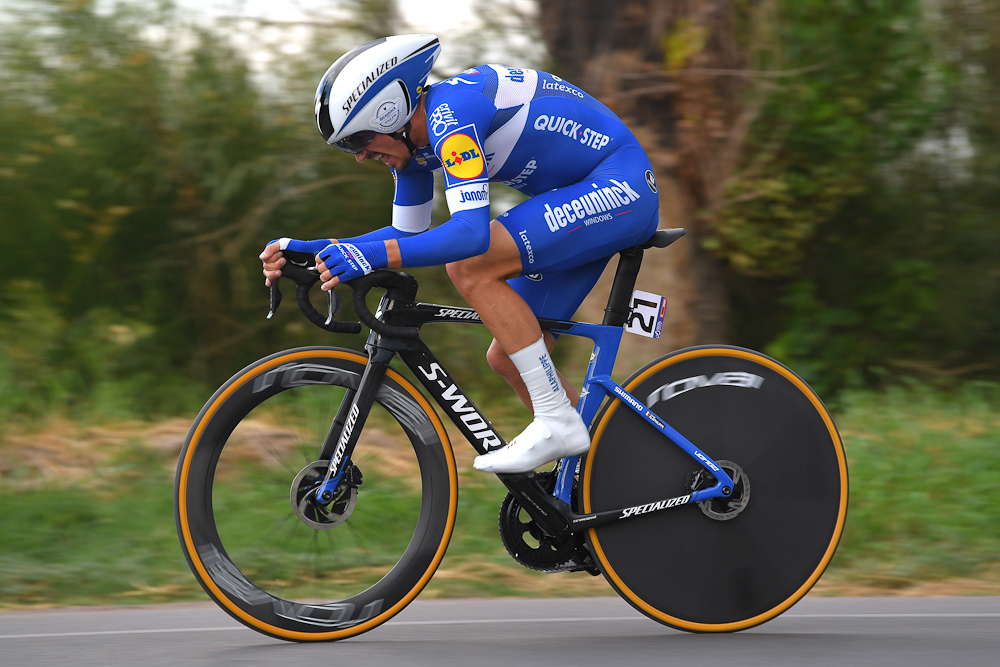
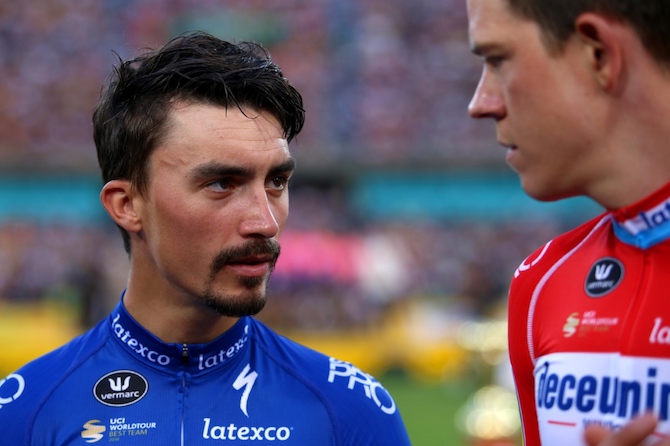
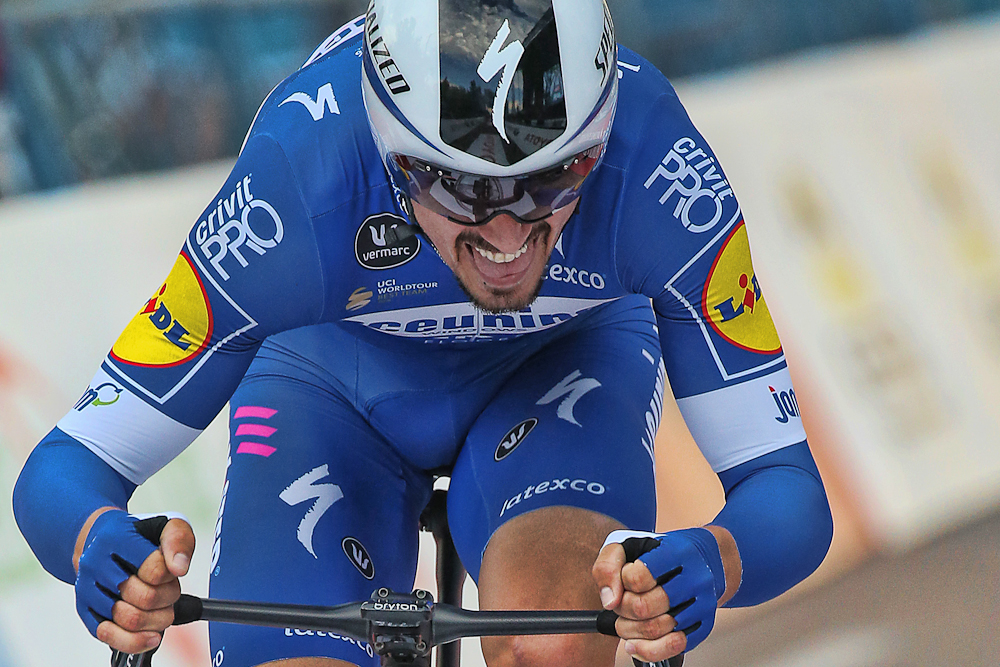
Julian Alaphilippe will lead the Deceuninck-QuickStep team at this week's Tour Colombia 2.1 stage race as he continues his South American early-season race programme in the hope he'll be at his very best in March for a block of major goals that spans from trying for victory on the dirt roads of Strade Bianche to a first one-day Monument win at Milan-San Remo.
Alaphilippe: I raised the bar, but now it goes back to zero
Alaphilippe takes stage 2 at Vuelta a San Juan with solo attack
Vuelta a San Juan: Alaphilippe wins stage 3 time trial in Pocito
Alaphilippe and Evenepoel inspire each other at Vuelta a San Juan
Alaphilippe accepts defeat after Movistar take charge at the Vuelta a San Juan
The Frenchman's unique climbing ability, his natural aggression and his acute tactical skill helped Alaphilippe win Flèche Wallonne, two Tour de France mountain stages and the polka-dot climber's jersey in 2018. He has set his sights even higher for 2019, hoping to win big for Deceuninck-QuickStep in March before the team's cobbled Classics riders take over in early April. Alaphilippe will then return for the Ardennes Classics to complete a significant block of spring racing.
"There are a lot of big goals in that block, and so I'm going have to stay focused – but it's exciting, too. I'll try to do my best and we'll see what happens," Alaphilippe tells Cyclingnews with his typical nonchalance and natural enthusiasm that seemingly helps him enjoy every moment of his career.
Alaphilippe won two stages at the Vuelta a San Juan, showing some impressive early-season form. He only missed out on overall victory when he and young teammate Remco Evenepoel were outfoxed and out-powered by Movistar and Winner Anacona on the 'queen stage' to the Alto Colorado mountain finish.
Alaphilippe travelled to Colombia directly from San Juan. He won a stage at the Colombian stage race in 2018, and returns with Bob Jungels and sprinter Alvaro Hodeg to chase more success.
"I think a block of racing in the warmth of South America is good for me before my first European races," Alaphilippe explains.
"It means I'll be away a long time because I'll probably stay at altitude for a week of training after Colombia, too. But these races are preparation races. It's about working to be even better in the weeks to come, in March especially."
Get The Leadout Newsletter
The latest race content, interviews, features, reviews and expert buying guides, direct to your inbox!
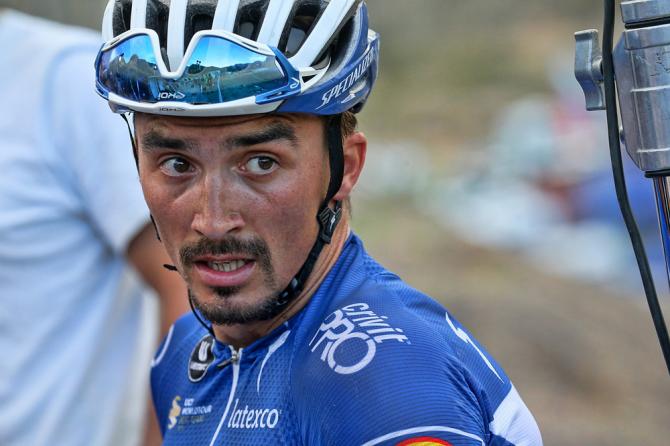
For most Classics riders, racing in Italy in March is all about working hard for the cobbled Classics, and doing the hard miles in the mild early Italian spring weather in the hope of a later peak of form and a shot at bigger goals in Belgium. Alaphilippe is different, and with Strade Bianche an ever-more prestigious race and part of the WorldTour calendar, Deceuninck-QuickStep have entrusted him with team leadership and a singular but ambitious plan.
"I really want to be at 100 per cent in March. I know that I can do well in one-day races, and also take some opportunities in week-long stage races, as I've shown in San Juan. It seems a good month of goals for me," Alaphilippe says.
"I've never ridden Strade Bianche, but I love watching it on television. Lining up at the start will be special, and I can't wait to be there and find out what it's really like. Tirreno-Adriatico is a goal, too. The ambition is to win some stages, but, if I'm well placed, I'll target the GC, too.
"Milan-San Remo is the final big March goal for me and the team. When you finish on the podium in your first attempt like I did in 2017, there's a lot of expectation from the public, the media, the team and from myself. But that's OK."
Alaphilippe got away with Peter Sagan and Michal Kwiatkowski in 2017, finishing third in the shoulder-to-shoulder sprint on the Via Roma. In theory, Alaphilippe has the ability to attack on the Poggio, but knows that winning 'La Classicissima' is far more difficult that it seems.
"It all depends on how the race unfolds, and other factors like the weather and especially the wind. If it rains all day, I know it's not for me," Alaphilippe suggests.
"Last year, I suffered all day and wasn't at my best in the finale when Nibali attacked. But I know that Milan-San Remo is different every single year. It can end in a sprint, with a solo attack like Nibali did, or with both. It's an important race, and I'll try to do a perfect race."
While the battles rage on the cobbles of Flanders and northern France, Alaphilippe will take a break and then prepare for the Ardennes Classics by riding the Itzulia Basque Country. The way he powered to victory on the Mur de Huy at last year's Flèche Wallonne ahead of Alejandro Valverde has given him the confidence to be able to find a second peak of form in late spring. However, it's clear that March contains the biggest goals.
Racing defeat makes you stronger
Alaphilippe turned 26 last June and has now raced at WorldTour level for four years.
Last year was a real breakthrough season for him, with 12 of his 20 career victories coming in 2018. He became the new hero for the French Tour de France fans with his aggressive riding and fast finishing, also winning the Clasica San Sebastian and the Tour of Britain in the second half of the season.
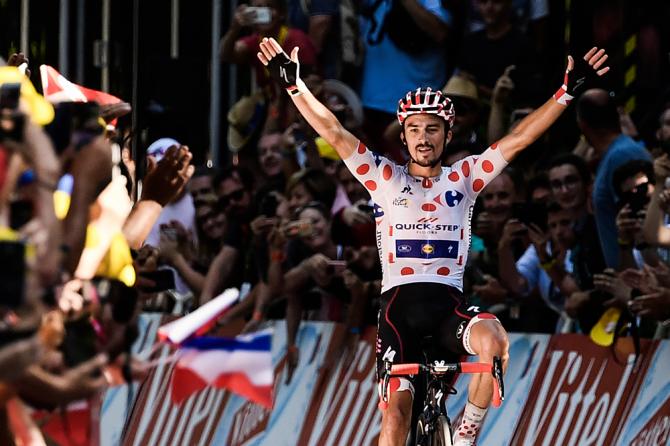
Alaphilippe's 2018 season was supposed to end in world championships glory in Innsbruck, Austria, after French national coach Cyril Guimard built 'Les Bleus' around him, believing the steep final climb of Höll was perfect for his 'en danseuse' style of racing.
Thibaut Pinot and Romain Bardet drove the select group of contenders to the foot of the climb to set up Alaphilippe, but he suddenly lacked the strength to go with Valverde, Michael Woods and Tom Dumoulin, forcing Bardet to rescue France's hopes.
Alaphilippe finished eighth, but was wracked by guilt and disappointment, ending his season in Innsbruck instead of targeting Il Lombardia. It took him several months during the off-season, enriched with time with his family, to put the disappointment behind him.
"I eventually began to look at my season as a whole and not get stuck on my last race. That made me realise how great my season had been. But that took time: I took almost a month and a half off the bike," Alaphilippe says.
"You have to move on, especially when you're like me. You have to learn to overcome the disappointment of defeat. I always want to win, I always want to be good and perform, but it doesn't always happen when you most want it to. I've learned that the hard way.
"Every moment in life affects you, and when you lose a big race like that, it takes time, but it eventually makes you stronger. I learned a lot last year, in lots of different ways. I'm the same person but I feel I'm a different rider. I'm stronger now."

Stephen is one of the most experienced member of the Cyclingnews team, having reported on professional cycling since 1994. He has been Head of News at Cyclingnews since 2022, before which he held the position of European editor since 2012 and previously worked for Reuters, Shift Active Media, and CyclingWeekly, among other publications.